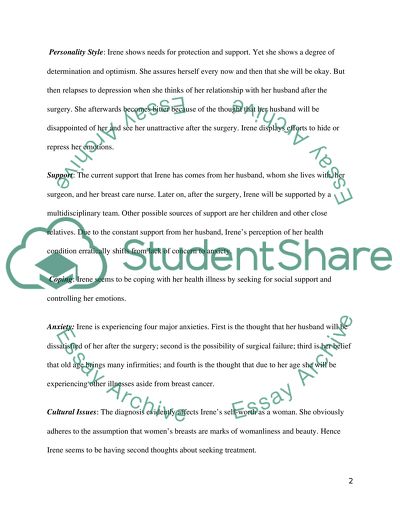Cite this document
(“Psychological Assessment of Breast Cancer Patient Essay”, n.d.)
Retrieved from https://studentshare.org/nursing/1430654-psychosocial-nursing-assessment
Retrieved from https://studentshare.org/nursing/1430654-psychosocial-nursing-assessment
(Psychological Assessment of Breast Cancer Patient Essay)
https://studentshare.org/nursing/1430654-psychosocial-nursing-assessment.
https://studentshare.org/nursing/1430654-psychosocial-nursing-assessment.
“Psychological Assessment of Breast Cancer Patient Essay”, n.d. https://studentshare.org/nursing/1430654-psychosocial-nursing-assessment.


